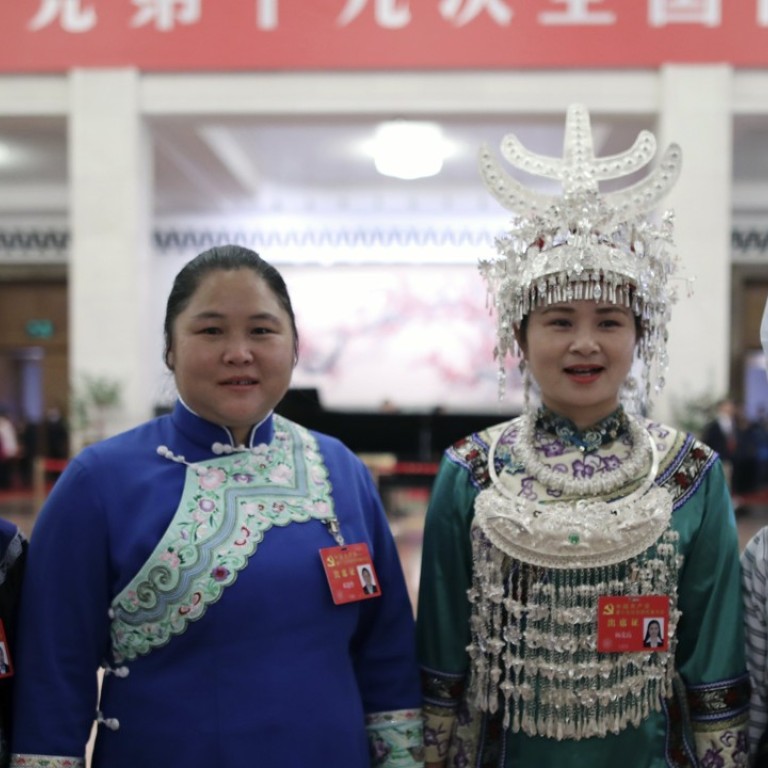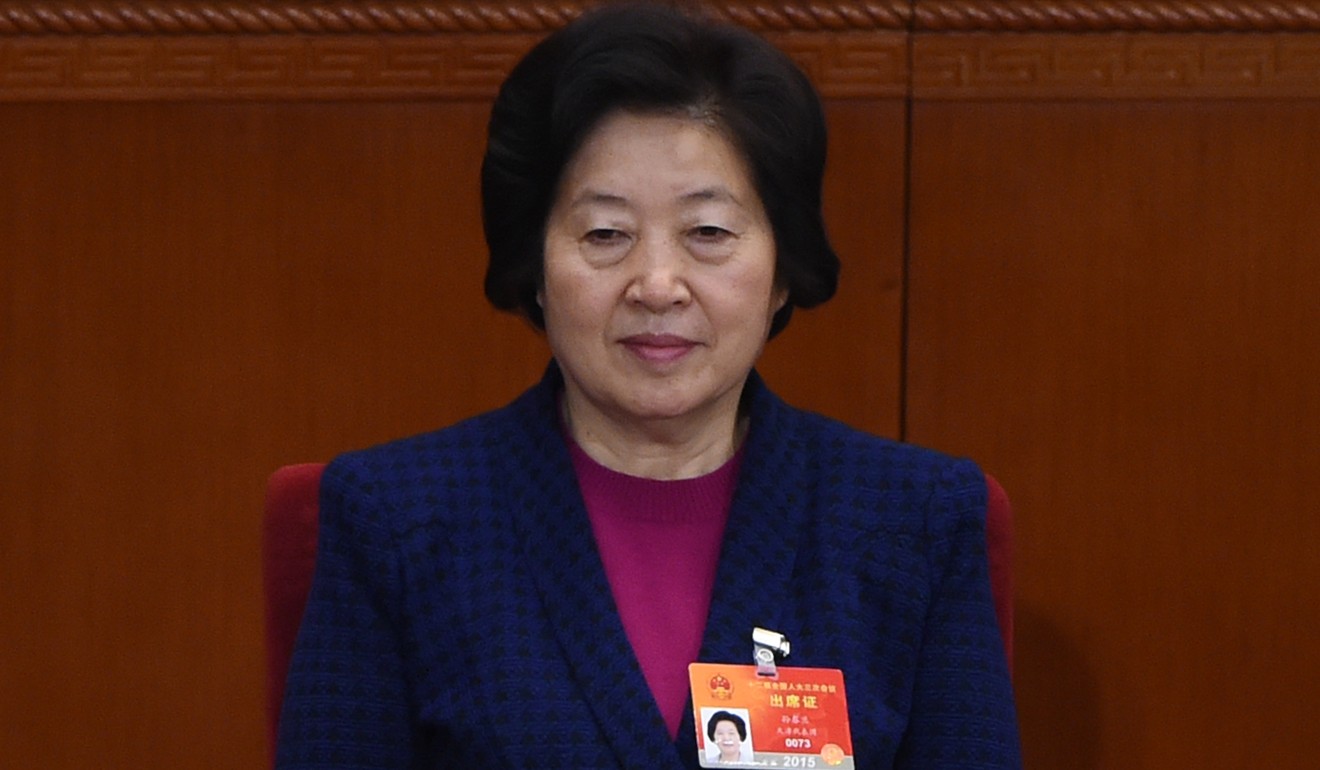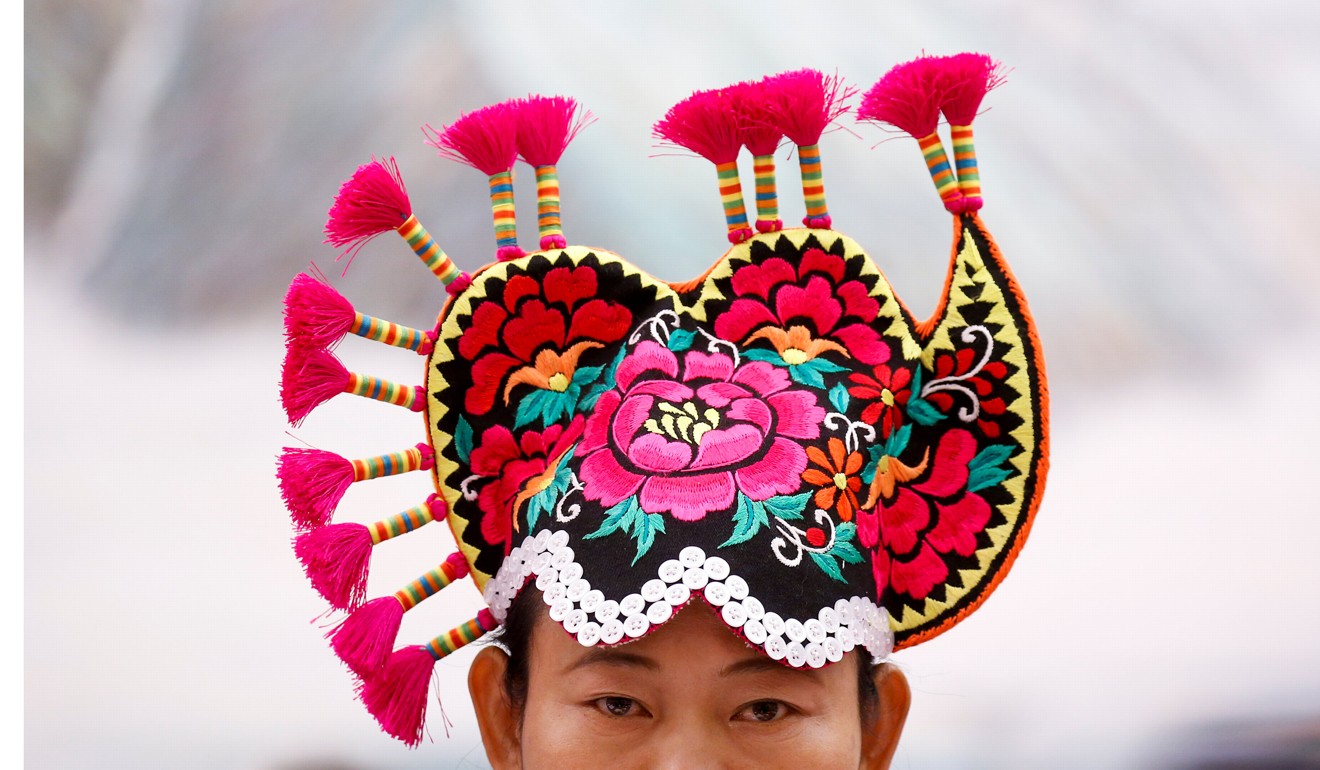
A record number of women … but it’s still a man’s world at the top of the Chinese government
While state media boasts about the increased number of female delegates, women’s rights activists complain they are still being frozen out of the top jobs
Despite official boasts about the record number of women taking part in the Communist Party’s congress over the last week, Chinese women are still being excluded from the country’s top-level politics.
Of the 204 people on the party’s Central Committee, just 10 of them are women, a total unchanged from the 18th congress of 2012.
Women’s rights activists and female civil servants have painted a gloomy picture about their chances of influencing the decision-making process even as state media highlighted the rising proportion of female delegates at the 19th congress.
Women now make up 24.1 per cent of the 2,287 delegates, according to People’s Daily, the party’s official mouthpiece.
At the 18th party congress five years ago, 23 per cent of the delegates were women while the figure was 20 per cent at the 17th congress in 2007 and 18 per cent in 2002.
State-run media said the increase reflected the great efforts made by the party to give women members a bigger say and improve gender equality and social stability.
However, this does not necessarily mean that women are becoming more influential at the top level of the country’s politics.
It appears highly unlikely there will be any women among the seven members of the Politburo Standing Committee, the most senior figures in the country.
There will only be two women in the wider, 25-member Politburo: Sun Chunlan, 67, head of the party’s United Front Work Department, and Li Bin, 50, from the National Health and Family Planning Commission.
Out of the country’s 22 provinces, five autonomous regions and four centrally controlled municipalities, there are no women party secretaries at the provincial level and only three female governors: Bu Xiaolin, governor of Inner Mongolia, Shen Yiqin, acting governor of Guizhou province and Xianhui, governor of the Ningxia Hui autonomous region.

A glass ceiling remains in place with many of the most senior roles in government only being open to men, according to Li Jun, a women’s rights activist.
“Female leadership reflects the openness of the system of government. I’m not positive in this field because we can estimate that national political democratisation will not make any progress in the coming years on the mainland,” Li said.
“We all tacitly assume that deputy department director level is usually the highest position for most female civil servants.”
One Guangzhou-based women civil servant said female civil servants at various levels usually worked in the fields of culture, education, and health.
“Only a few run the economy. Most of us lack of the political influence to become rising stars – unless we benefit from nepotism or trade sex for power,” she said.
The younger retirement age for women civil servants was also blamed for shortening their political careers. In China, women must retire up to 10 years earlier than men, she said.

Guangzhou-based lawyer Angela Luo said involvement in politics was an important way for women to realise their own interests by making use of their political rights.
“That’s why I want to be involved in politics,” Luo said.
“But I fear professional women lack the chance to take part in the management of state and social affairs.
“We can neither be independent candidates to be selected as a deputy to the people’s congress nor influence local officials.
“While the world welcomes more new top female leaders, it’s sad to see Chinese women are still trapped in a male-dominated government.”
But ethnic minorities have made slightly bigger gains on the Central Committee, with 16 members from ethnic groups on the body, compared with 10 five years ago.

